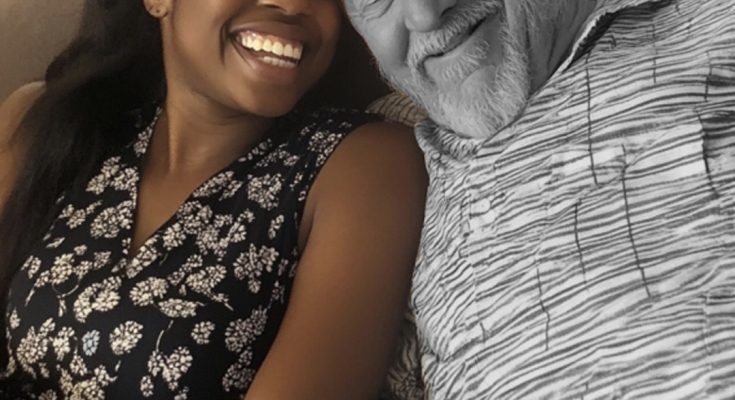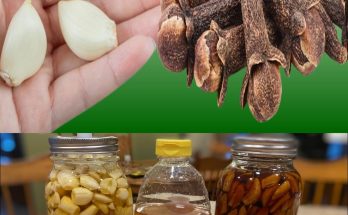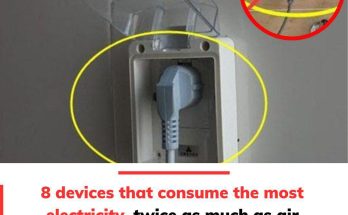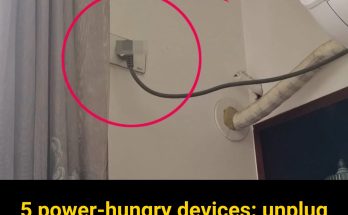While cleaning my late father’s desk, I found a hidden drawer containing a letter addressed to me. His words were tender — until they revealed a shocking secret he’d carried for years, one that changed everything I thought I knew about my life.
But I hadn’t come in here to dwell. I came to face the ghosts, to find a way to keep living without him. Still, my knees wobbled as I sank into his old leather chair, staring at the desk.
One by one, I began sorting through the drawers. It was all so painfully ordinary until I reached the narrow middle drawer spanning the central cavity. That drawer was locked.
I noticed the key lodged neatly in the desk organizer. My pulse quickened as I reached for it. I felt like a naughty kid again.
The lock clicked open as if it had been waiting for me. Inside were several slim folders and envelopes, but one stood out immediately. Right at the front was an envelope bearing my name in my dad’s handwriting: “For my Kate.”
Dad had written me a letter… but why didn’t he send it?
My hands trembled as I held the envelope. The words blurred before my eyes as I carefully opened it, letting the folded pages fall into my lap.
“Dear Kate,
If you’re reading this, it means I’ve found the courage to tell you the truth. I hope you’ll forgive me for all the things I didn’t say when I had the chance…”
His voice was alive in those lines, soft and familiar. The way he wrote about his childhood, meeting my mom, and the fierce pride he felt watching me grow.
Each sentence drew me closer to him. Then, my eyes caught a line that made my stomach twist.
“There’s one thing I never told you… When you were a baby, your biological mother made the ultimate sacrifice to give you a better life. We adopted you, and it was the best decision we ever made.”
The words hit like a fist to my chest. Adopted?
The word didn’t even make sense when paired with me. Adopted? It felt impossible, wrong, like trying to fit into someone else’s shoes.
I read the sentence again, hoping this was some cruel, misplaced joke. But it wasn’t. Dad had kept this from me. Why?
A shadow flickered at the edge of my vision, but it was only my reflection in the study’s glass display. My face, pale and tight, seemed foreign, unrecognizable. Whose face was it, really?
The letter wasn’t done.
“I hope you’ll find it in your heart to forgive us. There’s a second letter in this drawer, one that your birth mother wrote to you when you were born. I’ve kept it all these years for you to read when you were ready.”
My trembling fingers found it easily, but I couldn’t open it. I just couldn’t. Not now. Instead, I clutched the envelope to my chest, sinking to the floor like my legs had lost their strength.
The study seemed to close in around me, the walls heavy with memories of a life that suddenly felt unsteady, cracked at its foundation.
I reread Dad’s letter twice before my breathing returned to something like normal. Every memory I had (scraped knees he’d patched up, bedtime stories he’d told me, the way he’d taught me to ride a bike) rose in vivid flashes, colliding with the impossible truth.
Did those moments mean less now? Were they built on a lie? The thought constricted my throat, a painful pressure that wouldn’t ease.
I stared at the second letter in my hands, my knuckles white around its edges.
“Okay,” I murmured, my voice barely a whisper. “Okay, okay.” The words felt hollow, meaningless. Still, I peeled the envelope open with trembling fingers and unfolded the pages inside.
Her voice, raw and haunting, spilled out before me:
“I held you once, and it was the hardest thing to let you go. But I knew I couldn’t give you the life you deserved. I chose your parents because I saw such love in them. My only hope is for you to live a beautiful life.”
Tears welled and fell, soaking into the paper. My heart twisted, every beat a question without an answer. Her love and sacrifice was undeniable. But it cut deep, carving through me with an ache I hadn’t known I could feel.
I didn’t know what hurt more: the unrelenting grief in her letter or the secrets that had shielded me from it. Everything felt different now. The memories I’d leaned on all my life felt jagged, reframed by truths I hadn’t asked for.
I needed answers, and there was only one person I could think to call. Aunt Margie’s voice softened once I told her about the letter.
“Oh, Katie,” she said, the familiarity of her voice making me ache even more. “He told me this day might come. Are you okay?”
“No,” I said, my voice cracking. “I don’t know how to feel.”
Her sigh was heavy, weighted with a story she had clearly carried for years.
She explained how my parents had wrestled with the decision to tell me, and the heartbreaking circumstances my birth mother had faced.
Then Margie hesitated, and I heard her flipping through something on the other end of the line. “Your birth mother lived in Seattle, last I heard. Here, let me find the address.”
I clung to the phone, my heart hammering as she read it out. Her voice held reassurance, but I couldn’t escape the gnawing uncertainty.
The address wasn’t far, but every mile felt heavier than the last. My hands gripped the steering wheel so tightly my knuckles turned white, the tension in my shoulders building with every turn.
When I finally pulled up in front of the house, my pulse was a frantic drumbeat in my ears. It was smaller than I’d imagined, weathered but cared for, its garden bursting with wildflowers that spilled over the edge of a crooked fence.
I stepped out of the car, my legs shaky beneath me.
For a moment, I stood frozen, staring at the chipped paint on the door and wondering what I was even doing there. The envelope, now slightly crumpled, burned in my hand. Finally, with a deep breath that felt more like a gasp, I walked up the path and knocked.
The door opened slowly, and I held my breath. When she appeared, it was like staring at a reflection in rippled glass. For a long, agonizing moment, she just stared, her lips parted, her breath caught somewhere between disbelief and recognition.
“Kate?” she whispered, her voice trembling, fragile.
My throat tightened, and all the words I’d practiced on the drive vanished. Instead, I reached out and handed her the letter, my hands unsteady.
“This is from the man who raised me,” I said, my voice barely above a whisper. “He wanted you to know how much he loved me, and how grateful he was to you.”
She took it with trembling fingers, her eyes scanning the envelope as though it might dissolve in her hands. Then she opened it, carefully, reverently, and began to read.
Tears spilled over her cheeks almost instantly, her shoulders shaking with silent sobs. I didn’t move, or dare to breathe as we stood there, two strangers bound by an unspeakable history.
When she looked up, her expression was a heartbreaking mix of joy and grief.
“He was a good man,” she said softly, her voice thick with emotion. “I always knew… I always hoped he would be.”
The days that followed felt like a dream, one I couldn’t quite wake from.
Anne, my birth mother, invited me into her world with an openness that was both overwhelming and comforting.
She showed me photographs from a life I had never been part of. Her stories were vivid, painted with the raw emotion of someone trying to piece together a puzzle they thought they’d lost forever.
We cried together and laughed together, and slowly the pieces began to fall into place.
For the first time, I wasn’t just looking at my past. I was living it, understanding it in a way that both broke and healed me at once.
Weeks later, we met again at Dad’s favorite park. Margie and my cousins joined us. It was messy and awkward at times, but it felt right.
Standing there, watching the people who loved me come together, I realized my father had given me more than just answers.
That letter he never sent me had given me a way to embrace all parts of my story. And in that moment, surrounded by family, I finally felt whole.



